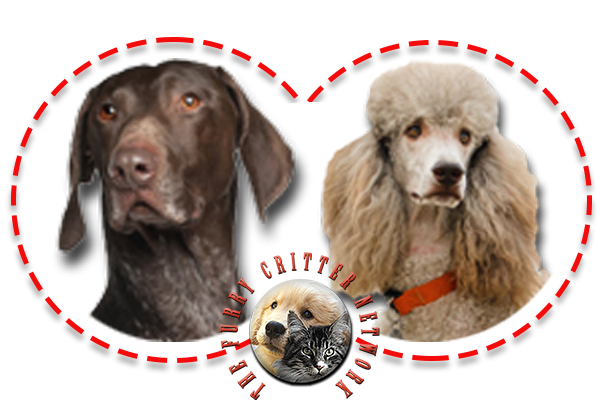Behavior
The German Pointing Dog is a vigorous, strong, fast distance galloper with great endurance who is not afraid of the cold and can hunt on any terrain. He is a hunting dog par excellence, a pointer above all. He specializes in feathered quarry in the field or in the woods and can also be used to track wounded game. Bursting with energy but even-tempered and obedient, he is strong-willed and can be stubborn. He is attached to his owner and loves children, making him a good companion. He is a good watchdog but not aggressive. He needs firm training.
The GSP coat is easy to take care of, but they shed a lot. Although their coat is short, they do shed. They shed more at certain times throughout the year. If that isn't taken care of, their hairs can be embedded in fabrics and carpet and it will be difficult to get it out. All it takes is to brush regularly with a firm bristle brush, along with baths when necessary.
Health
German Shorthaired Pointers are usually healthy but they can get certain health conditions. There are things like cancer, Lymphedema, Entropion, Van Willebrand's Disease, and Gastric dilation-volvulus (GDV). Some GSP are prone to epilepsy, hip dysplasia, and hermaphroditism. There are scans and test to verify vWD. When feeding a pup under 6 months they will need to be fed more than twice a day but once they reach adulthood they can be fed twice a day. Since German Shorthaired Pointer can bloat, they shouldn't be fed immediately after running or other vigorous exercise. Once they have eaten, they shouldn't run or exercise for at least an hour after eating and drinking. Most German Shorthaired Pointers are tough, healthy dogs, but the breed can be subject to a number of hereditary disorders due to their breeding. Some of these health disorders include, hypothyroidism, hip dysplasia, osteochondrosis dissecans (OCD), pannus, progressive retinal atrophy (PRA), epilepsy, skin disorders and cancerous lesions in the mouth, on the skin and other areas of the body. As with other breeds, un-spayed female GSPs are prone to breast cancer. This risk is reduced if they are spayed.
A genetic form of lupus, termed exfoliative cutaneous lupus erythematosus (ECLE) has also been recognized in German shorthaired pointer dogs. Lupus in dogs is a disease in which the immune system attacks the body's own cells and tissue. The disease is often present within 16 and 40 weeks of age. If diagnosed the life span of the dog is about four years.
Many factors, like genetics, environment, and diet can all contribute to hip dysplasia, which is a deformity of the hip joint. Not all German shorthaired pointers will develop displasia, but as the disease is determined by multi-genetic factors, only an OFA X-ray and screening by a qualified veterinary practitioner will determine whether the condition is present. No amount of exercise will correct it, and care should be taken to prevent slippage on smooth flooring. In severe cases, surgical correction may be required. Like many other deep-chested dogs, German shorthaired pointers are highly prone to gastric dilatation volvulus (GDV), also known as bloat. This is a life-threatening condition, requiring immediate veterinary treatment. GDV occurs especially if the dog is fed one large meal a day, eats rapidly, drinks large amounts of water after eating, or exercises vigorously after eating. In GDV, the stomach distends with gas or air and then twists (torsion), so that the dog is unable to rid the excess air in stomach through burping or vomiting. Also, the normal return of blood to the heart is impeded, causing a drop in blood pressure and the dog will go into shock. Without immediate medical attention, the dog may die. Some symptoms of GDV are: distended abdomen, excessive salivation, retching without throwing up, restlessness, depression, lethargy, and weakness. Precautions against GVD include: refraining from feeding immediately before or after exercise, feeding several smaller meals throughout the day instead of a single large meal, and avoiding the consumption of large amounts of water with dry food.
As with any other hunting dog, contact with game can cause the spread of fungi and bacteria that can easily colonise in the gums or cause infections on open wounds and small cuts from scratching against plants and bushes during a regular hunting session.






